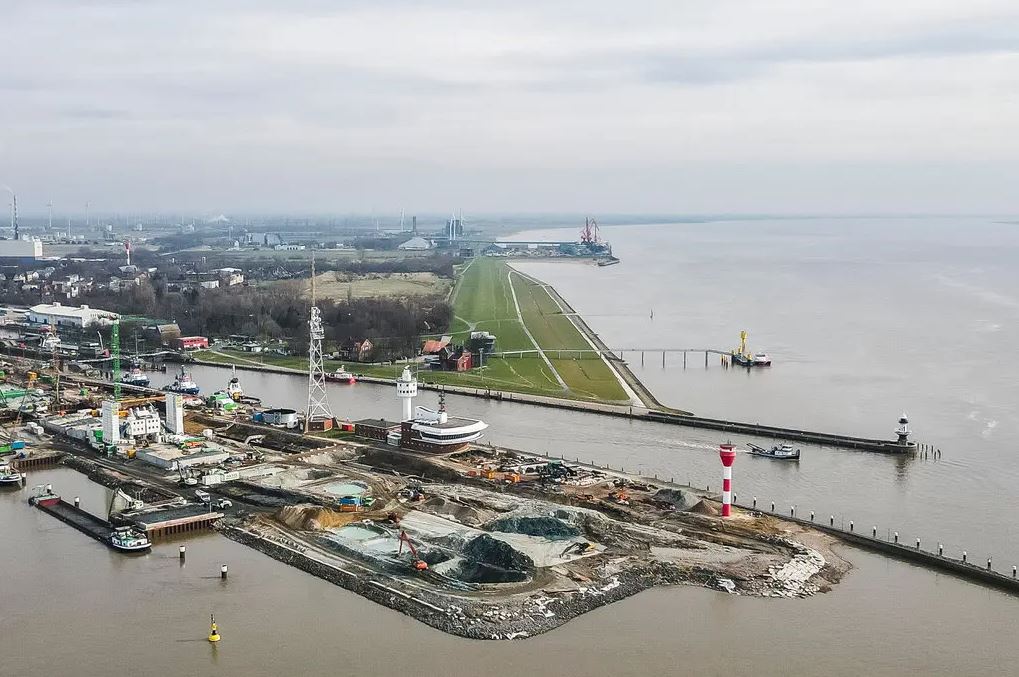The German government’s plans to construct a terminal for accepting shiploads of liquefied natural gas were in chaos just a few months ago. Customers were not confident that a facility that may cost billions of dollars would be used to its full potential, according to prospective developers. Concerns about climate change have also cast a shadow on the long-term viability of fossil fuels such as natural gas.
The public’s perception of the situation has shifted. Following Russia’s invasion of Ukraine and the Kremlin’s threats to cut off fuel supplies, the German government has determined that the country requires these massive facilities — as many as four of them — to wean the country off Russian gas and serve as a lifeline in the event that Moscow cuts off the taps completely. The expense to the taxpayer seems to be just a minor issue at this point.
The vast majority of the natural gas that Europe imports from Russia to fuel its electrical utilities is transported via pipelines that run over land or under the sea. When pipelines are not an option, liquefied natural gas gives an alternative method of transporting gas across long distances. Natural gas is cooled to the point of becoming a liquid and then transferred into special tankers. It may then be transported to any port, where it can be converted back into gas and pumped into the power system to generate electricity.
Lithuania said on Saturday that it will no longer be purchasing natural gas from Russia. Because Lithuania is a small nation, the cutoff will not have a significant impact on the Russian economy. However, due to the fact that it is a member of the European Union, its choice had symbolic geopolitical significance. The need for Europe to adapt to a low-carbon economy took on fresh urgency Monday in the aftermath of worldwide outrage over photographs of victims strewn over the streets of Ukrainian cities where Russian forces have withdrew. Leaders pondered how to penalise Russia without endangering Europe’s ability to get key energy supplies in the short term.
In the same way that Russia’s invasion of Ukraine is transforming perceptions throughout Europe, notably in Germany, the continent’s most powerful economy, it is also reshaping energy markets across the world. Years have passed in which Europe has imported vast amounts of natural gas from Russia to heat its homes and power its industries; however, this practise, which is based on billion-dollar pipeline infrastructure, is now at risk of being severely curtailed.
By 2030, the European Union hopes to have brought a stop to what it considers to be an unhealthy entanglement. Specifically, it hopes to reduce reliance on Russia, which provided 40 percent of European gas last year, by two-thirds within a year’s time.
What strategy will be used to replace these massive amounts of Russian natural gas? Liquid natural gas is a wager that the European Union is placing on.
Europe’s leaders want to secure 50 billion cubic metres of extra L.N.G. shipments over the course of the next year, which would be equivalent to about half of the Russian gas they want to abandon. That is not the only thing that Europe is doing. Officials may be able to get additional gas via pipelines connecting Norway and Azerbaijan. They also seek to cut gas usage by increasing the number of wind and solar energy projects, and they are urging residents to turn down their thermostats to save money. Analysts, on the other hand, believe that Europe will struggle to replace such a large amount of gas. Rationing is one of the reasons Germany is getting ready to implement it.
That possible stumbling block isn’t deterring Germany from embarking on the construction of what would be the country’s first liquefied natural gas terminal, as well as a flurry of new and expansion projects around Europe. In a port named Brunsbüttel near Hamburg, Berlin seems to have agreed on a permanent terminal, while it still has options on three floating constructions, which are less expensive. It is possible to be completed in a few of months.
The political influence that comes with these energy wealth is significant. Liquefied natural gas has been offered by the United States to Europe in order to assist the European Union cut its energy ties with Russia, which has been a long-standing desire of certain American politicians.
On March 25, the Biden administration and the European Union reached an agreement under which the United States would “strive to ensure” that at least 15 billion cubic metres of additional L.N.G. reached Europe this year, an amount roughly equivalent to around 10% of the gas Europe imports from Russia.
Cheniere Energy is going forward with a major expansion of its export facility in Corpus Christi, Texas, according to a press release. The country of Qatar also claims that it is planning on bringing in a massive amount of liquefied natural gas within the next five years.
Although the present boom in Europe is projected to last for many years, developers will be concerned of the possibility that it could end far before the expiry of the new LNG projects, which are normally scheduled to run for 20 years or more. And European officials continue to warn that natural gas is just a temporary solution until renewable energy sources such as wind, solar, and hydrogen take over.

